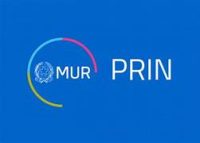Refining methods, tuning tools, enhancing book heritage for the study of the relationship between text and exegesis in manuscripts of ancient Greek poetry.
The ParaText project (PRIN 2022 – 2022NE2LWP – CUP F53D23007870006) aims: (a) to carry out an in-depth investigation on the relationship between literary text and exegetical paratext in the manuscript transmission of ancient Greek poetry; (b) to develop, and make available to the community of scholars, a prototype tool of digital transcription that allows to describe, understand and further explore this cultural phenomenon; and (c) to enhance the book heritage of a renowned Italian library by a public exhibition of important medieval manuscript witnesses of ancient Greek poetry and related exegesis.
☞ We assume the concept of paratext as developed, after G. Genette, in specific reference to (Greek) manuscripts (e.g. Ciotti/Lin 2016; Andrist 2018).
- The ParaText team brings together scholars expert in text and transmission of ancient Greek poetry and related exegesis from Antiquity to the Byzantine era, with the purpose of achieving new goals in the field in terms of both method and knowledge. The study of ancient scholarship concerning poetic works which were at the core of Greek civilisation – archaic epic and lyric, Attic theatre, Hellenistic poetry – aims to draw a diachronic and a synchronic map of exegetical strategies and a description of their typological and functional features. Particular attention is devoted to the logical and structural organisation of the exegetical paratexts: linear commentary (e.g. hypomnemata, continuous commentaries); compiled commentary (e.g. scholia, lexica). We are also interested in the relations between the two types, i.e. motives, dynamics and effects of transforming an arrangement as linear source into a compilation and vice versa. This line of research takes the form of webinars and lectures, and scientific articles.
- The research also aims to design an innovative standard for textual analysis, by producing the prototype of a digital tool enabling scholars to dynamically represent and explain the relationship between literary text and exegetical paratext in ancient books. The outputs of this tool will find their place in the Repertoire of Hypertext Transcriptions (RHT) and will be provided with introductory information, translation, commentary and bibliography. The RHT will be accompanied by a lexicon of ancient Greek exegesis and a critical bibliography on the topic. The RHT and all its complements are open access tools, addressed to scholars, advanced university students and non-specialist cultivated people interested in the knowledge and understanding of literature and book heritage.
- Some of the most significant manuscripts being studied belong to the Veneranda Biblioteca Ambrosiana in Milano. They are the core of a public virtual (digital) exhibition, hosted in this website, destined to scholars, students and educated people.

